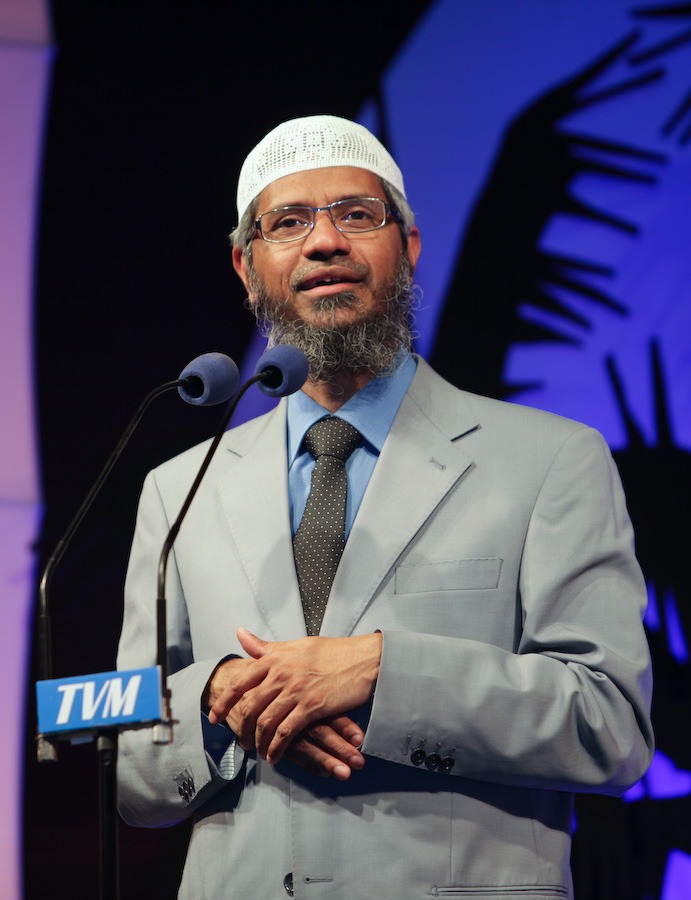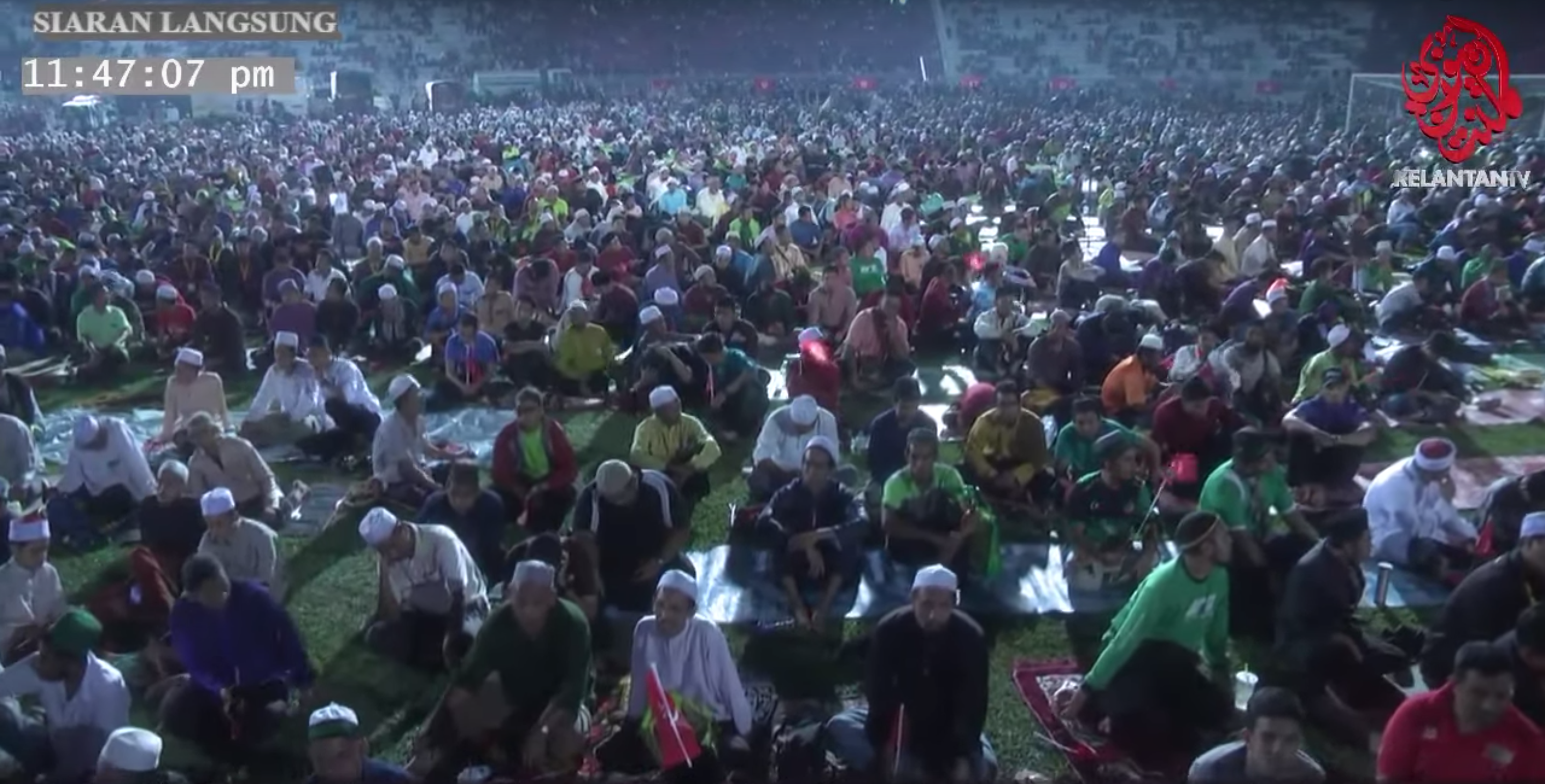Zakir Naik and Malaysia’s Ugly Reflection

By Shaun Tan
Founder, Editor-in-Chief, and Staff Writer
21/8/2019

Zakir Naik
If you’ve been following the news in Malaysia the past few weeks, you might get the impression Zakir Naik is someone of importance. Three years after the Indian Islamist televangelist moved to Malaysia, he seems to have set its people against each other, with ministers and lawmakers calling for him to be deported for his controversial remarks against minorities, and a major Islamist political party vowing to defend him, telling Muslims that Islamic solidarity should outweigh regard for their non-Muslim countrymen. Every day, calls grow for prominent figures to declare their stand on the issue, and he’s been banned from speaking in public (though the legality of that ban is dubious). Many now speak of him like he’s some sort of evil genius, a kind of proto-Hitler who has to be silenced at all costs before he sets the country aflame.
He is nothing of the sort. Zakir Naik is a preacher of no particular charisma or intellect, and his crackpot ideas are unlikely to hold up before a high school debate team. He holds no special office or position (in fact, as a permanent resident, his position is weaker than a citizen’s). Naik himself is not important; but what his case reflects about Malaysia is.
Zakir Naik himself is not important; but what his case reflects about Malaysia is.
What’s important is that tens of thousands of Malaysian Muslims support him – two weeks ago, 30,000 people flocked to his talk in the state of Kelantan. What’s important is that tens of thousands in what is supposed to be a “moderate Muslim country” would support someone who advocates terrorism, who endorses executing apostates from Islam who propagate another religion. What’s important is that Malaysia’s prime minister, Mahathir Mohamad, saw fit to honor Naik with a private meeting soon after taking office and that his minister for religious affairs called the preacher an “inspiration.” When Naik claimed that Malaysian Indians were more loyal to Narendra Modi than to their own prime minister, when he called for Malaysian Chinese to leave the country because they were “old guests,” what’s striking wasn’t that such sentiments were unprecedented but that they were common. How many times have we heard people here, including prominent politicians, say things that were as bad or even worse? Where did Naik learn to say such things in the first place? When so many Malay-Muslim leaders regularly champion the supremacy of their race and religion over the rights of others, when a leader of the former ruling party can say “I am a racist, Islamically,” it’s clear Naik isn’t exceptional. These people were here long before he arrived. They will be here long after he’s gone.

Zakir Naik’s audience in Kelantan
What’s important is that the government’s first instinct seems to be to censor him “in the interest of national security and to preserve racial harmony,” apparently because his comments offended many people. What’s important is that liberals and moderates, far from objecting to this infringement of freedom of expression, seem to support this move. What’s important is that they seem to have forgotten that the government (under the old regime, at least) used this exact rationale countless times in the past to silence its critics, block news publications, including The Malaysian Insider and the Sarawak Report (which helped expose the 1MDB corruption scandal), and ban political rallies, sexuality rights festivals, T-shirts calling for clean elections, and the use of the word “Allah” in a church publication. What’s important is that they don’t seem to realize or care that the rationale used to silence Zakir Naik today will likely be used to silence legitimate discussion and debate tomorrow. What’s important is that after voting out the old authoritarian ruling party last year, they still seem to want authorities to dictate what can and cannot be said and treat Malaysians like perpetual children. What’s important is that they seem ok with an oppressive government, so long as it oppresses people they don’t like.
People don’t seem to realize or care that the rationale used to silence Zakir Naik today will likely be used to silence legitimate discussion and debate tomorrow.
Since Naik has in fact advocated terrorism, the Malaysian government can rightly cancel his permanent residency (which should never have been granted in the first place) and expel him from the country on those grounds. If he’s expelled at all, though, it’s far more likely to be on the dubious charge of “offending sensibilities.” The most likely result then is that Malaysian liberals and moderates will celebrate, peddle the convenient fiction that the alien menace of Islamist racism has been excised from our idyllic society, as if Zakir Naik is anything more than a scapegoat, as if the real problem didn’t lie with us.
Solving that problem will be much harder than expelling one foreign preacher. It will require cutting out the cancer of Islamism at its root. It will require combating the spread of Wahhabi Islam in mosques, in madrasas, and in public life. It will require the courage to stand up to racial and religious supremacists and the political maturity to realize that defending freedoms means also defending them for those we hate or fear.
Until we conquer our own demons, all Zakir Naik and the whole sorry episode around him does is reflect an ugliness that was there all along.
